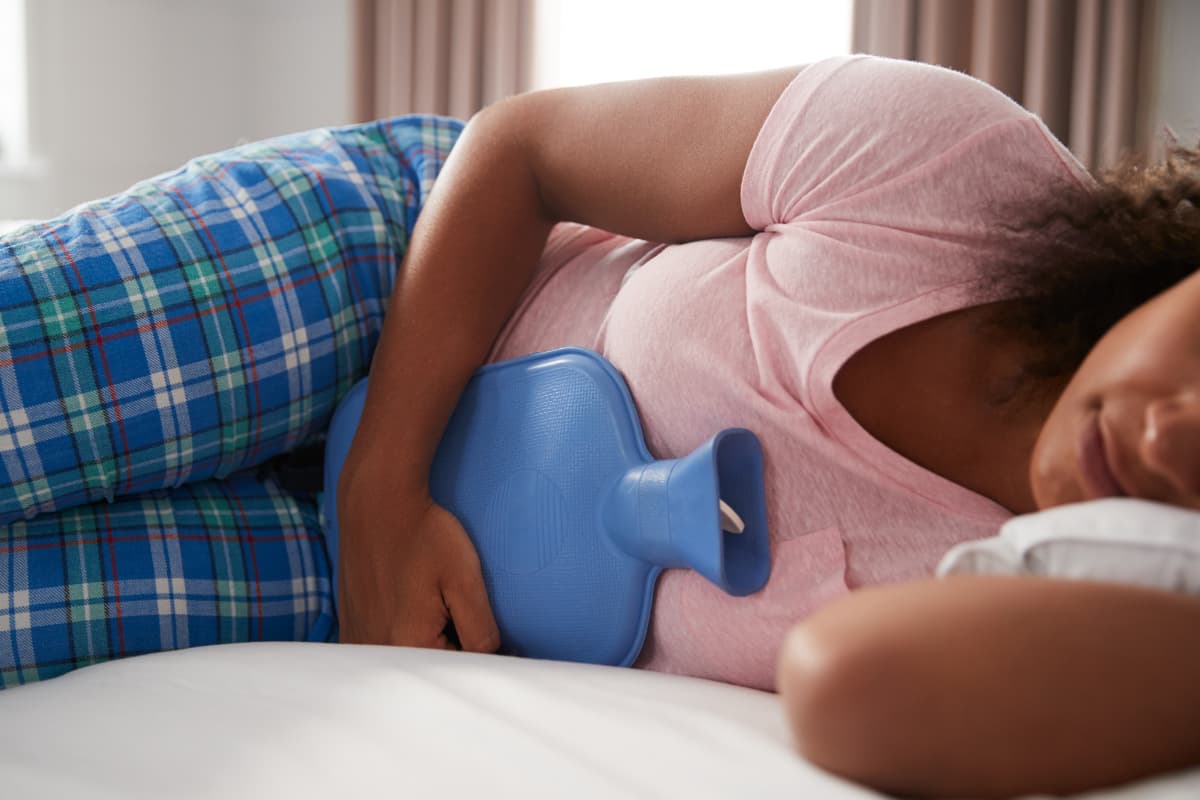10 Surprising Symptoms of Menopause

If you’ve been with us for a while, you know that we like talking about some of the most common (and obnoxious) menopausal symptoms experienced by women. For instance, night sweats, hot flashes, vaginal dryness, painful intercourse, and moodiness, for which we can primarily thank the natural drop in our estrogen levels during midlife.
But what about other, more obscure symptoms that many women report experiencing but aren’t talked about as much? We’re talking about 10 of those – plus what you can do about them – in this article.
10 Surprising Symptoms of Menopause
If you experience any of the following changes during your menopausal journey, you may not be in the majority, but that doesn’t mean you’re alone either.
Dry and Burning Mouth
This is an actual condition called burning mouth syndrome (BMS), which affects between 15-33% of postmenopausal women. It’s thought to be caused by the drop in estrogen levels, which can lead to less saliva, dry mouth, and a burning sensation. It’s possible that reducing stomach acid can help BMS.
Itchy Skin
Dry and itchy skin can be a condition called pruritus, caused by estrogen loss. Estrogen levels are related to the production of oils in your skin that keeps your body moisturized. Estrogen loss also leads to the loss of collagen, a building block of your skin. When there’s less hydration and less collagen in your skin, it’s common to itch. Sometimes lotions, oatmeal baths, and anti-itch medications (in more extreme cases) can help.
Metallic Taste
The drop in estrogen levels that occurs in menopause can cause an extremely dry mouth, which can trigger a metallic taste for many women. Some women report that boosting their zinc intake can help, as can sucking on candies that increase saliva production and staying hydrated.
Body Odor
Believe it or not, the loss of estrogen can also trigger a change in how your body smells. One reason for this is that menopause frequently causes women to experience hot flashes and night sweats which, not surprisingly, can lead to odor changes. An increase in anxiety, which some women experience during menopause, can also lead to more sweating – and more odor. Menopause aside, studies have shown that our body odor changes with age and support reports of a unique “old person odor.” Be sure to stay hydrated, manage your stress levels, sleep in breathable clothing and bedding – natural fibers are best, and speak with your doctor if you’re concerned.
Thinning Hair
Some women will also lose their hair during menopause. Fortunately, women tend to lose hair in more subtle places than men do. Instead of bald spots, women usually lose hair all over, leading to overall thinning. Estrogen helps your hair grow faster and last longer so when hormone levels drop, your hair might feel the effects. Stay away from excessive stress in your hair routine, like high heat tools, brushing your hair when it’s wet, and using abrasive products on it. Avoid pulling your hair back into a tight ponytail or bun to reduce the stress on the follicle. Make sure you have a healthy diet with nutrients that promote hair growth.
New Allergies
If you notice that you have a new sensitivity or allergy during menopause, hormones may be at the root of the problem. Estrogen in normal levels may help your body respond well to potential allergens, meaning that your sensitivity is when estrogen is no longer present in normal levels. If you’re noticing changes like these, try to identify triggers (and avoid them), manage your weight, and reduce your exposure to environmental allergens. Be sure to speak with your healthcare provider for the best management options.
Electric Shock Sensation
Though generally considered to be harmless, this symptom can feel like a sudden, snapping sensation against parts of your body. It’s presumed to be a result of hormonal changes and possibly paresthesia, a tingling feeling sometimes felt during menopause. Some women find that staying hydrated, doing things to improve their sleep, being physically active, eating well, and making sure they’re not deficient in important vitamins and minerals helps.
Gum Disease
Women become more susceptible to mouth and gum diseases during menopause. Dental professionals think it’s probably because of hormonal changes as well as bone loss and an increase in inflammation. Be sure to take good care of your teeth by brushing and flossing daily, as well as seeing a dentist regularly.
Digestive Problems
Another common complaint for many women during menopause is constipation or irregularity in their bowel movements. The drop in estrogen and progesterone in your body can impact your digestive system because this causes cortisol levels to rise, increasing stress, slowing digestion, and potentially increasing your risk for bowel changes. To promote regular bowel movements, stay hydrated, exercise regularly, and get enough fiber in your diet from fruits, vegetables, whole grains, nuts, and seeds. Lay off the junk food, fast food, and low-fiber carbs.
Panic Attacks
Many women experience mood changes during menopause, like depression, anxiety, and irritability. Less commonly, you could experience feelings of panic that aren’t normal for you. Symptoms of a panic attack include a racing heart, weakness, sweating, dizziness, shortness of breath, and tingling. Be sure to speak with your healthcare provider for management, which may include anxiety medication and counseling.
Whatever strange new thing you’re noticing during menopause, talk to an expert in menopausal care about what could be causing it and what the best course of action is to manage your symptoms.
For more information about managing menopausal symptoms holistically, download Midday from the App Store or visit us at Midday.Health.
Sign up for more unique women’s health content
By submitting this form, you agree to the Lisa Health Privacy Policy and Terms of Use


